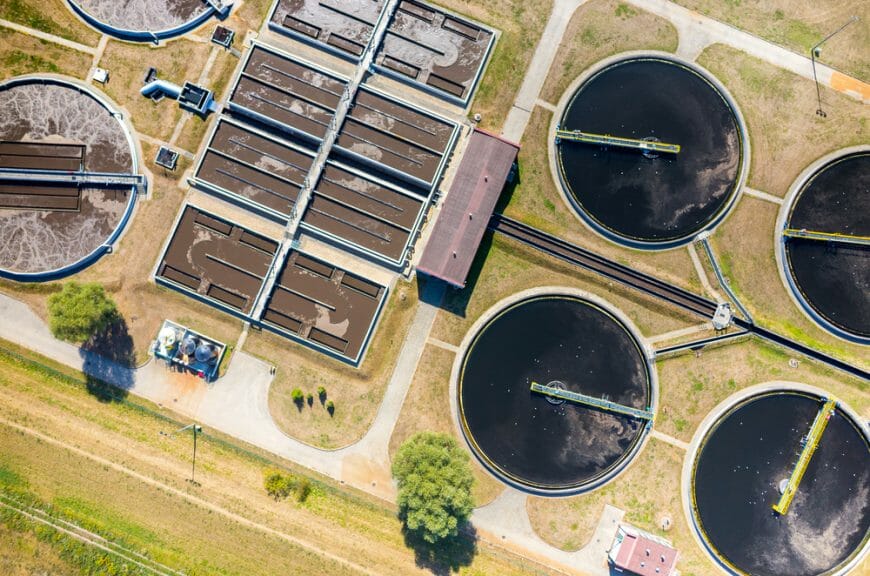The use of wastewater surveillance for monitoring early community spread of COVID-19 has become increasingly important as other testing methods decline in the United States.
Genetic sequencing of wastewater samples has revealed numerous unique strains of the virus with various mutations. These “cryptic lineages” could potentially be linked to individuals who have been living with chronic and serious COVID-19 infections for extended periods.
Researchers conducted a recent study to understand the origin of one cryptic lineage in Wisconsin by examining its evolution. They discovered that the lineage was associated with a facility serving 30 people and persisted for over a year. Similar stories have emerged from additional data. These individuals, termed “chronic shedders,” are estimated to release at least a thousand times more virus than an average COVID-19 patient.
Dr. Marc Johnson, a molecular biologist at the University of Missouri and co-author of the research, has identified 37 such cases in the US using publicly available wastewater monitoring data. However, he believes there could be many more cases yet to be discovered. Although these cryptic lineages currently do not pose a public health threat, they raise intriguing questions about the long-term presence of the virus in certain individuals and the implications for long COVID.
The US Centers for Disease Control and Prevention (CDC) has been closely following these developments but has not been directly involved in the research. Amy Kirby, program lead for the CDC’s National Wastewater Surveillance System, stated that the specific variants of concern typically observed at the beginning of a variant surge are not associated with these cryptic lineages.
Wastewater surveillance presents challenges due to its complexity, and multiple factors can complicate data interpretation. The unique instances identified could be attributed to people with long COVID or even infected animals whose waste has entered the sewer system. To confirm the source, it is necessary to link the genetic sequence from a clinical test to the corresponding wastewater sample.
Finding individuals associated with cryptic lineages could help them receive proper medical attention and contribute to understanding long COVID. However, this would require coordinated public health messaging in local communities to raise awareness, as well as the cooperation of community members. While wastewater surveillance is inherently anonymous and not intended for individual identification, tracking back to specific individuals can aid in addressing their health needs.
Overall, the identification of cryptic lineages through wastewater surveillance provides valuable insights, but decisions regarding pursuing individual cases should be left to public health officials.
With the identification of specific cryptic lineages through wastewater surveillance, there is a potential opportunity to provide medical assistance to individuals suffering from chronic COVID-19 infections and uncover more about the mysteries of long COVID. Directing these individuals to appropriate care and treatment could offer relief from unexplained symptoms and potentially mitigate long-term damage caused by the infection.
However, the task of identifying the individuals associated with cryptic lineages is not straightforward. It requires a combination of data analysis, collaboration between researchers and public health officials, and community engagement. Coordinated efforts involving local health departments, medical professionals, and community leaders are necessary to raise awareness about the possibility of chronic infections and the potential implications of being a chronic shedder.
Furthermore, the privacy and anonymity of wastewater surveillance must be respected. Wastewater monitoring primarily serves as a community-level surveillance method, and efforts to track back to specific individuals should be the exception rather than the norm. Public health officials must carefully consider the benefits and ethical implications of pursuing individual cases.
As wastewater surveillance continues to play a vital role in monitoring COVID-19 spread, researchers and health authorities need to collaborate to develop guidelines and protocols for handling these unique situations. Establishing a framework that balances privacy concerns, public health objectives, and the potential benefits to individuals with chronic infections is crucial.
Additionally, ongoing research and studies on cryptic lineages can contribute to our understanding of the virus’s behavior, transmission patterns, and the factors influencing the development of long COVID. By examining the genetic makeup of these unique strains, scientists may uncover valuable insights that can inform future strategies for mitigating the impact of COVID-19.
In summary, wastewater surveillance has emerged as a valuable tool for monitoring early community spread of COVID-19. The identification of cryptic lineages presents an opportunity to assist individuals with chronic infections and gain further knowledge about long COVID. However, the process of identifying and addressing these cases requires careful consideration, community involvement, and adherence to privacy principles. Continued research and collaboration among scientists, public health officials, and community stakeholders will be essential to make the most of the insights provided by wastewater surveillance.














